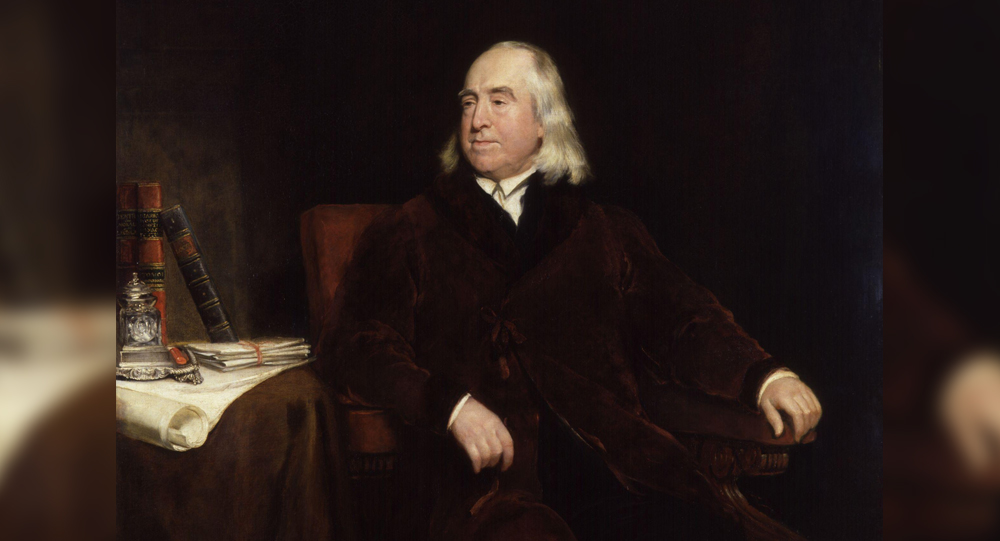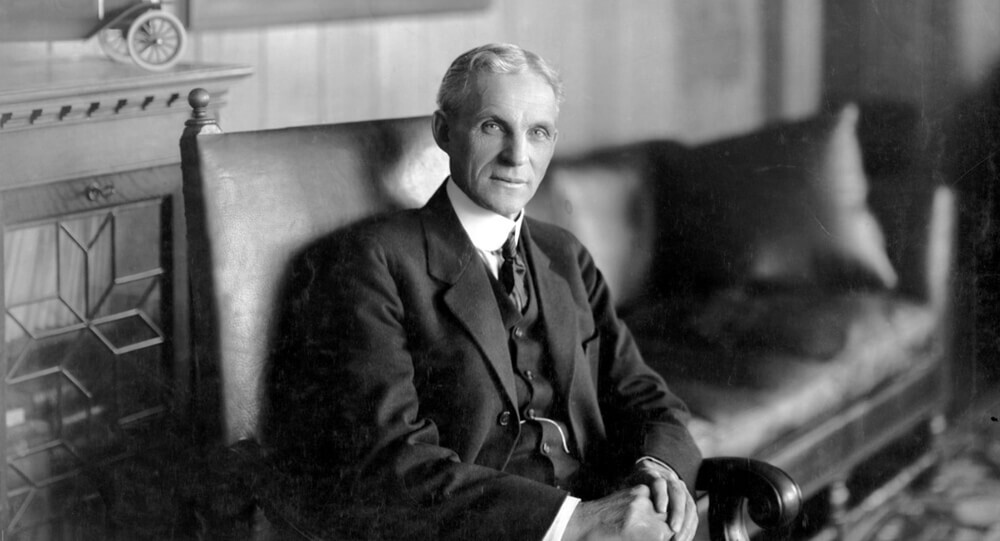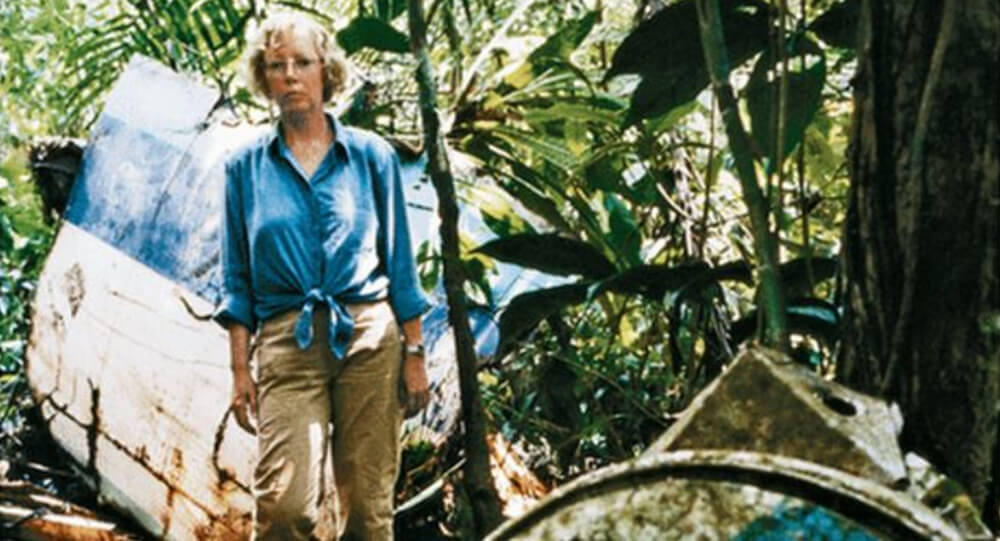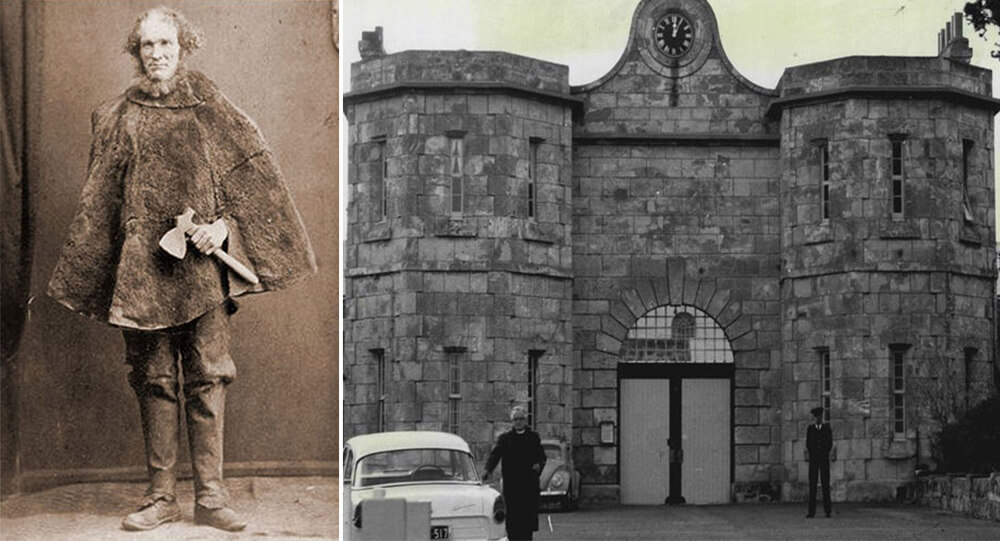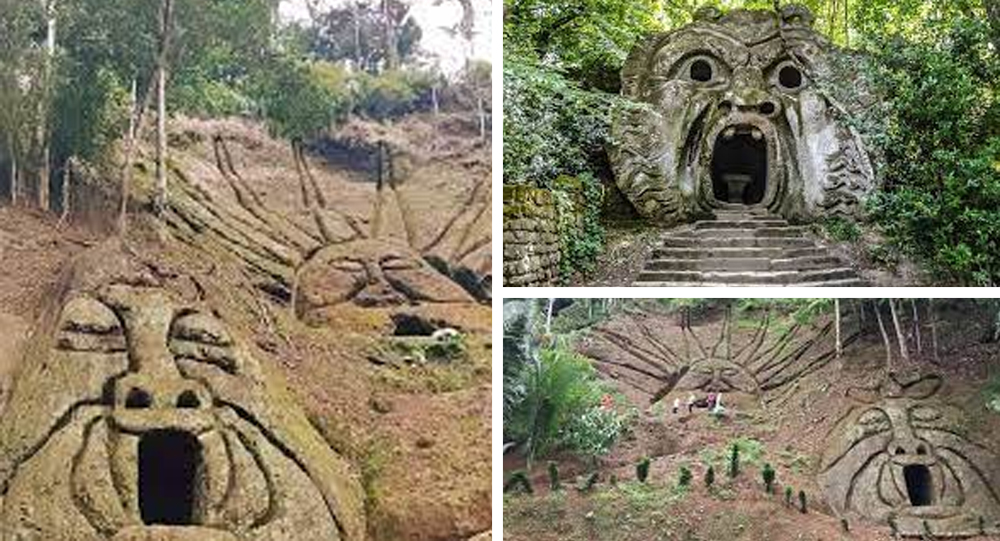
Xin Zhui, also known as Lady Dai, is a mummified woman from China’s Han dynasty (206 BC-220 AD) who is still soft to the touch, has natural hair, and has ligaments that still bend, much like a living person. She is more than 2,000 years old. She is regarded as the most expertly preserved human mummy in recorded history. This is her incredible tale.
The Shocking Discovery Of Xin Zhui, The “Lady Dai” Mummy
When workers were excavating close to an air raid shelter outside of Changsha in 1971, they almost literally stumbled upon Xin Zhui’s enormous tomb. More than 1,000 priceless artifacts, including make-up, toiletries, hundreds of pieces of lacquerware, and 162 carved wooden figures that represented her staff of servants, were kept in her funnel-shaped crypt. Even a meal was prepared for Xin Zhui to eat in the afterlife.
While the intricate structure was impressive and had remained intact for almost two thousand years, what really astounded researchers was Xin Zhui’s physical state.

When she was discovered, it was discovered that she had retained the skin of a living person, which was still supple and elastic to the touch. Her original hair, including that on her head and inside of her nostrils, as well as her eyebrows and eyelashes, were discovered to be in tact.
Baffled Researchers Begin Studying The World’s Best-Preserved Mummy
She died in 163 BC, so scientists were able to perform an autopsy, during which they found that her 2,000-year-old body was in comparable condition to someone who had just passed away.
But as soon as the oxygen in the air touched Xin Zhui’s body, her preserved corpse was compromised, and she started to deteriorate. As a result, the pictures of Xin Zhui that we currently possess do not do its initial discovery justice.

Researchers also discovered that she had all of her organs, and that type-A blood was still present in her veins. Her official cause of death—a heart attack—was revealed by the presence of clots in these veins.
Gallstones, high cholesterol, high blood pressure, and liver disease were among the additional illnesses that were discovered throughout Xin Zhui’s body.
Pathologists even discovered 138 undigested melon seeds in Lady Dai’s stomach and intestines while examining her. It was safe to assume that the melon was her final meal, consumed just before the heart attack that ultimately claimed her life, as such seeds typically take an hour to digest.

How Is Xin Zhui’s Lady Dai Mummy So Well-Preserved?
Researchers give credit to Lady Dai’s elaborate and airtight tomb. Xin Zhui was buried almost 40 feet underground, inside the smallest of four pine box coffins, each one set inside the other (imagine a Matryoshka set, where the dead body of an ancient Chinese mummy is revealed once you reach the smallest doll).

Her body was discovered in 21 gallons of a “unknown liquid” that was tested and found to be mildly acidic and contain traces of magnesium while being wrapped in twenty layers of silk fabric.
Her eternal chamber was sealed with clay and packed with moisture-absorbing charcoal to keep out oxygen and bacteria that cause decay. A thick layer of paste-like soil covered the floor. After that, three more feet of clay were used to seal the top, keeping water from entering the building.
The search for immortality

The ancient Chinese had a fascination with the afterlife.
It was crucial for them to keep the body as intact as possible in order to enter the underworld.
After she passed away, the body of Xin Zhui was cleaned with wine and flagrant water, both of which have antibacterial properties that prevent the body from decomposing.
Twenty layers of clothing were tightly layered around the body. The corpse was buried in an airtight casket. A second airtight coffin was then placed inside the coffin. There were four coffins surrounding one another.
The Xin Zhui’s coffins were the equivalent of a Russian nesting doll.

The coffin was buried 12 meters (40 feet) underground, in a place with a constant, cool temperature. A layer of white clay and charcoal that was 3 feet thick (1 meter) served as the coffin’s protective covering.
The body was discovered floating in an unidentified translucent liquid by the scientists when they opened the innermost coffin.
Scientists were unable to determine what kind of liquid it was; all they knew about it was that it was acidic. However, the scientists who touched the substance endured months of hand rashes.
Who Was Xin Zhui Before She Became The Mummy We Know Today?

In contrast to her burial and death, we know relatively little about Xin Zhui’s life.
Li Cang (the Marquis of Dai), a prominent Han official, was married to Lady Dai, who passed away at the young age of 50 due to her penchant for excess. Her fatal cardiac arrest was thought to have been caused by a lifetime of obesity, a lack of exercise, and a lavish and too much diet.

She may still have the best-preserved corpse in history, though. The primary subject of their research into corpse preservation is Xin Zhui, who is currently kept in the Hunan Provincial Museum.

Atomic Tourism: In the 1950s, nuclear tests in Las Vegas served as a draw for tourists
Between 1950 and 1960, Las Vegas offered “Atomic Tourism” in which guests could watch atomic bombs being tested in the desert as a form of entertainment.

Did Gil Pérez Really Teleport from Manila to Mexico Overnight? The 1593 Mystery
On October 24, 1593, while performing his guard duties at Manila's Governor's Palace in the Philippines, Gil Perez stopped to lean against a wall and sleep for a while. He opened his eyes to find himself in an unusual environment. Gil was in the Plaza Mayor in Mexico City. They imprisoned Perez, but the authorities in Mexico City decided to release him and return him home.

Mother who spent entire life savings for daughter’s cancer treatment won the lottery
A mother won $2 million from a $10 scratch-off lottery ticket after she spent all of her entire life savings to pay her daughter’s cancer treatment. She bought the winning ticket after her daughter’s last cancer treatment.

Roller Coasters were First Invented to Distract People from sin
Roller coasters were invented to distract Americans from sin. In the 1880s, hosiery businessman LaMarcus Thompson didn’t like that Americans were going to places like saloons and brothels and created the first roller coaster on Coney Island to persuade them to go there instead.

How 18th Century Women’s Rights Movements Shaped Modern Equality
The 18th century marked a turning point in the quest for women’s rights, as passionate voices challenged centuries of gender inequality and laid the groundwork for modern feminism. From pioneers like Mary Wollstonecraft to revolutionary declarations and early advocacy, this era sparked debates on education, political participation, and social justice that continue to resonate today. Journey through the origins of women’s rights movements and discover how their bold ideas shaped the fight for equality.

Remembering the miracles of the 1985 Mexico earthquake (unbelievable stories)
In 1985, after an 8.0 magnitude earthquake hit Mexico City, nearly all newborn babies survived a collapsed hospital. They are known as “Miracle Babies” for surviving 7 days without nourishment, water, warmth or human contact.

Graves holding hands over wall, A Catholic woman and her Protestant husband grave
A protestant man and a Catholic woman who weren't allowed from being buried together in a graveyard in 19th-century Holland turned their graves into a monument showing them holding hands across the wall separating them.

Louis Le Prince Invented the motion picture camera, and then he mysteriously disappeared
Louis Le Prince, the inventor of motion pictures, vanished without a trace in 1890. Thomas Edison quickly claimed the title of "first and sole inventor of cinema," even taking Le Prince's son to court to dispute it. A few years later, the son also dies under mysterious circumstances.

How European Rabbits Took over Australia
In 1859, wealthy settler Thomas Austin released 13 wild rabbits on his Australian estate. By 1920, their population grew to 10 billion.

Henry Ford, The man popularizing the concept of the weekend off
Henry Ford was the first Industrial Giant to give his employees both Saturday and Sunday off in the hope of encouraging more leisurely use of automobiles and thus popularizing the concept of the "weekend."

Blanche Monnier: Imprisoned For 25 Years For Falling in Love
Blanche Monnier, she was a French woman noted for her beauty, she wished to marry an old lawyer that her mother disapproved of, so she locked her in a small dark room in her attic for 25 years.

Jack the Baboon operated a railroad, earned a living, and never made a mistake
A baboon worked as a signalman for the railroad in the late 1800s. He never made a mistake and worked for the railroad until the day he died.

Iranian inmate dies from happiness after finding out he will not be executed
An Iranian man who was convicted of murder reportedly died from happiness after learning that his death sentence was being commuted.

The unbroken seal on King Tutankhamun's tomb until 1922
The unbroken seal of Tutankhamun's tomb before it was opened in 1923, it was unbroken for over 3000 years.

Irena Sendler: woman who rescued Jews during holocaust
Irene Sendler was the Zegota resistance group's head of the children's department. She risked her life to smuggle children out of the Warsaw ghetto, place them with Polish families or orphanages, give each child a new identity, and keep records so that they could be returned to their families. In 1943, the Gestapo arrested and sentenced her to death, but she was rescued by Zegota.

Juliane Koepcke: The Teenager Who Fell 10,000 Feet And Trekked The Jungle to survive
In 1971, a high school student was sucked out of an airplane after it was struck by lightning. She fell 10,000 feet to the ground while still strapped to her chair and survived. Only to endure a 9-day trek to the nearest civilization.

The youngest person executed, George Stinney Jr was proven innocent
In 1944, George Stinney Jr. was 14 years old when he was executed in South Carolina. It took only ten minutes to convict him — and 70 years to exonerate him.

Quaker Oats Fed Children with Radioactive Oatmeal
In the 1940s and 1950s, Quaker Oats and MIT conducted experiments on radioactive iron and calcium-containing cereal. The diet was part of a study to see if the nutrients in Quaker oatmeal traveled throughout the body. In January 1998, a $1.85 million settlement was reached for 30 victims who came forward.

The day Iceland's women went on strike
Icelandic women went on strike for equal rights on October 24, 1975. 90% of women walked out of their jobs and homes, effectively shutting down the entire country. The men were struggling to keep up. The following year, Parliament passed a law requiring equal pay. Iceland elected the world's first female President five years later. Iceland now has the highest gender equality rate in the world.

Titanoboa cerrejonensis, fossils of the world’s largest species of snake
In 2009 in a coal mine of Columbia, scientists discovered fossils of the world’s largest species of snake. The species is called “Titanoboa cerrejonensis,“and it is from around 60 million years ago. It would have had measured about 48 feet long and weighed about 2,500 pounds

Why This Belgian Bar Makes You Trade Your Shoe for a Beer
To prevent tourists from stealing their beer glasses, some bars in Belgium require people to hand over one of their shoes as a deposit which is then put in a basket and hung from the ceiling. These shoe baskets have also become an attraction.

The Assassination Of King Alexander
The assassination of King Alexander of Yugoslavia marked a pivotal moment in the country's history. This article delves into the rise and reign of King Alexander, exploring his early life and ascension to the throne. It also examines the political and social climate in interwar Yugoslavia, setting the stage for the tensions and challenges that ultimately culminated in his tragic assassination. By understanding the context in which this event unfolded, we can better grasp the significance and impact it had on the nation and its future.

Moondyne Joe: The story of Australia's most notorious prison escapee
A man named Joseph Bolitho Johns (A.K.A Moondyne Joe) broke out of Australian prisons so many times that the police were compelled to build a special cell just for him. He escaped from that as well.

Archaeologists Uncover 2,000-Year-Old Amazonian Cities Using Lidar Technology
Deep in the Ecuadorian Amazon, archaeologists have uncovered an ancient network of urban settlements once inhabited by the Upano people about 2,000 years ago. Using cutting-edge lidar technology, these discoveries reveal a highly organized society featuring sophisticated agricultural systems, drainage canals, and extensive road networks. This transformative find challenges long-held assumptions about ancient Amazonian societies and sheds light on a complex civilization thriving in one of the world’s most biodiverse regions.

The Arabia Steamboat: Unearthing a 19th Century Time Capsule from the Missouri River
The Arabia was a steamboat that sank in the Missouri River in 1856. Over time, the river shifted 800 meters to the east, eventually turning the site of the sinking into a field. The steamboat remained under 45 feet of slit and topsoil until 1988, when it was excavated. The mud, as it turned out, was such a great preserver that most of the artifacts on board were found to be intact. They even found jars of preserved apples that were still edible!





